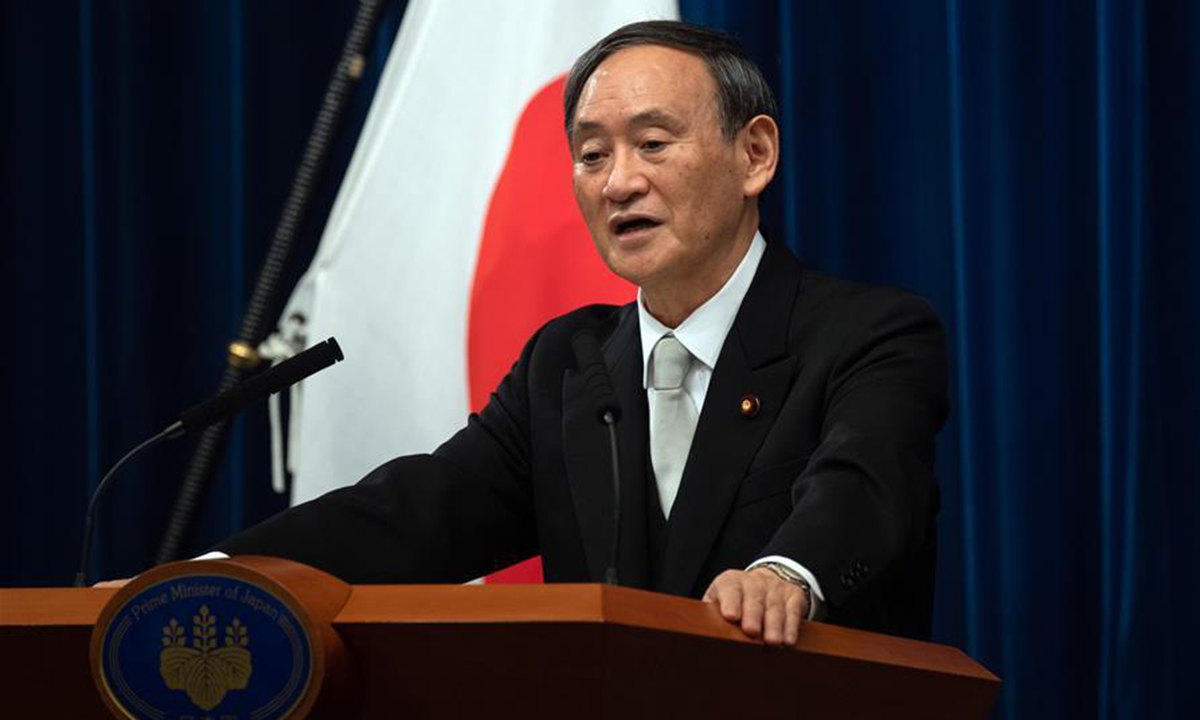Suga Makes First Foreign Visit To Indo-Pacific

Japanese Prime Minister Yoshihide Suga on Wednesday completed his first foreign four-day trip to Vietnam and Indonesia, since taking office in September. Tokyo agreed with Hanoi and Jakarta to step up their bilateral defense and economic ties.
Japanese prime ministers’ first visits traditionally used to be the US. However, former prime minister Shinzo Abe selected China for his first overseas trip in his first term, and Vietnam and Indonesia in his second term. Suga’s visit is a continuation of the diplomacy of the Abe administration. Japan is not reconciled to just big countries Instead, it is pursuing to be a friendly with its immediate neighbours. It is trying to break through diplomatic traditions, in a bid to achieve its “diplomacy that takes a panoramic view of the world map” – an initiative put forward by Abe in 2012.
Suga’s visit to Vietnam and Indonesia mainly promoted Japan’s “Free and Open Indo-Pacific” (FOIP) strategy, which was officially unveiled in 2016. The Japanese government has called FOIP a “vision” rather than a “strategy.” This may be intended to avoid a strong emphasis on the military nature. Whatever it is called, Japan has a global perspective on geostrategy.
Southeast Asia is of significance for Japan to promote its FOIP vision. In the region, Vietnam and Indonesia are two prominent countries in terms of both economy and defense.
Japan has maintained its economic cooperation with Southeast Asian countries for decades. However, the “two lost decades” since 1991, when an economic decline was witnessed, constrained Japan’s investment and economic expansion in Southeast Asia. Suga may intend to revive Japan’s economic existence presence and ties with this region. This is the basis to promote Japan’s Indo-Pacific vision.
However Japan interprets its Indo-Pacific vision, it is with a strong military emphasis. Boosting cooperation in defense and security with the two Southeast Asian countries is a highlight of Suga’s visit. This copies the Abe administration.
Enhancing ties in terms of economy and defense with ASEAN members are the fundamentals for Japan to realize its strategic position in the Indo-Pacific region. Only by doing so can Japan play its role as a great political power in the region.
Suga said on Wednesday that Japan was not aiming at an “Asian NATO” to contain any specific country. Suga’s rhetoric is supposed to be the real intent of Japan. From the perspective of Japan’s national interests, it would be a disaster to be part of an “Asian NATO.”
The essence of NATO is a collective defense and security institution. If one NATO member is attacked, other NATO members stand with it as though they had also been attacked. If Japan joined the so-called Asian NATO, it does not only mean that Japan must be more closely tied to the chariot of the US, but also implies Japan would spread its military obligations abroad. This would go against the constitution of Japan, as well as Japan’s interests.
However, Japan does have the need to contain China in regions such as the South China Sea. As a maritime power, Japan has its claims to pursue “freedom of navigation in the South China Sea.” As a result, Tokyo hopes to follow Washington’s lead in containing China in this disputed waters. However, the two countries’ strategy and focus in checking and balancing China differ. The US attempts to engage in all-round containment against China, while Japan merely aims to check China in its concerned areas, such as the Diaoyu Islands and South China Sea.
In both countries, Suga expressed his concerns over South China Sea. Suga said on Wednesday in Jakarta that Japan opposes any moves that step up tensions in the South China Sea. Some media said that Suga was talking about China without naming it. Le Monde, a Paris-based French media outlet, even published an article arguing that Suga reinforces an anti-China diplomacy.
Drawing readers’ attention is one of the aims of media reports, with some exaggeration. It is true that Japan hopes Vietnam and Indonesia can work as anti-China forces. Yet it seems to underestimate the significance of Suga’s visit if it is only understood as an “anti-China diplomacy.” Suga’s visit to the two Southeast Asian countries serves Japan’s internal affairs, attempting to deal with its difficult economic slowdown, as well as to promote its Indo-Pacific vision.



